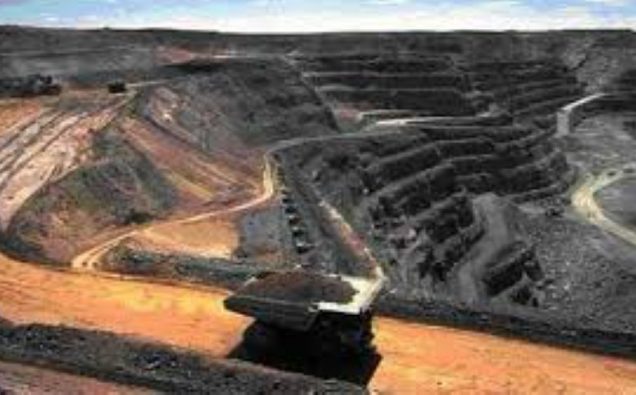
The United States has shown interest in investing in development of minerals in Pakistan, home to one of the biggest copper reserves in the world.
Following Secretary of State Marco Rubio’s telephonic talk with his Pakistani counterpart a senior American official on South Asian affairs attended a Pakistan Minerals Investment Forum in Islamabad.
Eric Meyer, Acting Assistant Secretary of the Bureau of South and Central Asian Affairs at the State Department, called on Prime Minister Muhammad Shehbaz Sharif and discussed the potential investment in Pakistan’s mineral sector, the Prime Minister House in Islamabad said.
The U.S. interest in Pakistani minerals comes as Washington seeks to do business in minerals and Pakistan, grappling with a prolonged macroeconomic crisis, seeks to make use of its vast reserves of minerals and natural resources to turn its fortunes around.
Pakistan has one of the world’s largest porphyry copper-gold mineral zones, while the Reko Diq mine in southwestern Balochistan has an estimated 5.9 billion tons of ore.
Barrick Gold, which owns a 50 percent stake in the Reko Diq mines, considers them one of the world’s largest underdeveloped copper-gold areas, and their development is expected to have a significant impact on Pakistan’s struggling economy.
The resource-rich Balochistan has faced security challenges with an insurgency grounded in grievances that the local people have been ignored in the overall development plans while the provincial resources have been used nationally.
During the PM House meeting, Sharif invited the American companies to tap into the significant opportunities in mostly unexploited mineral sector in this part of the world.
He also praised U.S. participation in the forum, emphasizing the considerable prospects for investment in the mineral sector and encouraging U.S. firms to make the most of these opportunities.
For his part, the U.S. official congratulated Pakistan on successfully organizing the Mineral Investment Forum and acknowledged the vast potential of the mineral sector.
According to the PM House, Meyer also indicated American companies’ interest in investing in this area and expressed the U.S. commitment to further fostering bilateral relations.
Sharif has been expressing Pakistan’s eagerness to strengthen its relationship with the United States under President Trump’s administration with enhanced cooperation in areas such as trade, investment, and counter-terrorism.
Trump had praised Pakistan’s cooperation in apprehending and enabling transfer of ISIS-K operative Mohammad Sharifullah last month. Rubio reiterated that praise in the telephonic conversation with Foreign Minister Ishaq Dar.
However, Islamabad has nervously received the news about President Trump’s levying 29 percent on Pakistani imports into the United States since America is the biggest trading partner for the South Asian country.
President Trump’s latest announcement to pause reciprocal tariffs for 90 days might ease Islamabad’s concerns.
Concurrently, there have been moves on the Capitol Hill to pressure Pakistan into governing the country democratically. Pakistani Americans have long raised the issue of the detention of former Prime Minister Imran Khan and sought consequences for those behind his imprisonment.
The current Pakistani government came to power as a result of elections in February 2024, which Imran Khan’s party alleges were heavily rigged.
The U.S. and Pakistan had close ties during the Afghan war – triggered by Sept 11, 2001 terror attacks – but the bilateral relationship ebbed after a 2021 chaotic American withdrawal from Afghanistan.
The latest developments signal the Trump Administration’s willingness to explore ways to revive cooperation in security and economic areas.
Views News Now staff in the U.S. contributed to this report.













